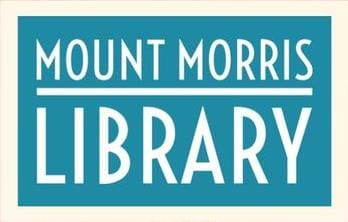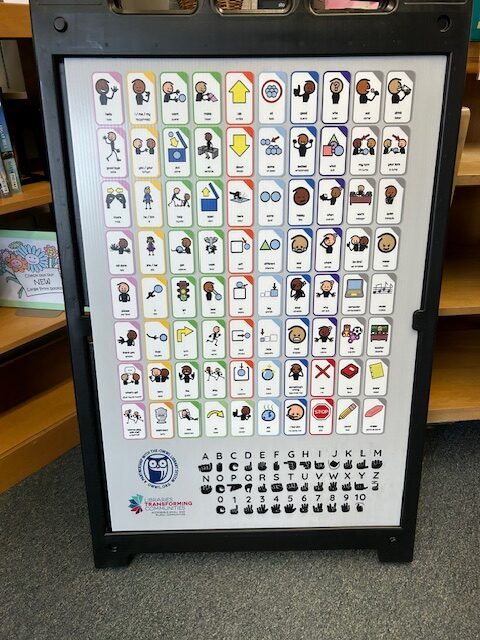The Mount Morris Library is proud to announce the acquisition of an AAC Board to assist in nonverbal communication among patrons, staff, and visitors of all ages.
AAC stands for augmentative or alternative communication of standardized pictures of different people, places, things, actions, phrases, and ideas, to be used for nonverbal communication. Since its inception in the mid-1980s for original usage with nonverbal preschool children diagnosed with Autism, AAC Boards have been implemented worldwide for millions of users to communicate without the reliance on verbal/spoken or written communication. The AAC Board provides a means of communication between library staff and patrons with different needs, including (but not exclusive to) physical or cognitive disabilities or degenerative illness; patrons who have suffered a stroke or traumatic brain injury; autistic patrons; and patrons who do not speak English.
The AAC Board is used as follows: Users can point to a picture on the board, or a series of pictures, to express a question, an answer, or an idea. The illustrations are simple, minimally colored basic drawings. The communication language selected for this board is standardized and understood across all ability levels and languages. It includes English and Spanish words and ideas primarily used in libraries and other learning settings.
Library Director Fernanda Astiz is passionate about communication and accessibility in the library. When the OWWL system offered her to be part of a grant project that would bring an AAC board to our library, she immediately signed on. “I saw AAC boards used at other learning institutions,” she explained. “And thought, why not bring this tool to our library? This accessibility communication board could be used anywhere, and it has the potential to give so much ‘voice’ to nonverbal communicators. Libraries are for everyone, and so is communication.”
Additionally, the library obtained new books for our collection. These books include picture books, chapter books, and graphic novels as well as both fiction and non-fiction titles, that serve as mirrors in which our non-speaking community members (or community members who may have challenges communicating) can see themselves reflected. This program is funded through an American Library Association (ALA) Libraries Transforming Communities (LTC): Accessible Small and Rural Communities grant and the System’s Coordinated Outreach State Aid budget.
The AAC board is located by the circulation desk. Anyone with questions about the AAC board can reach out to our outstanding staff members for more information!

